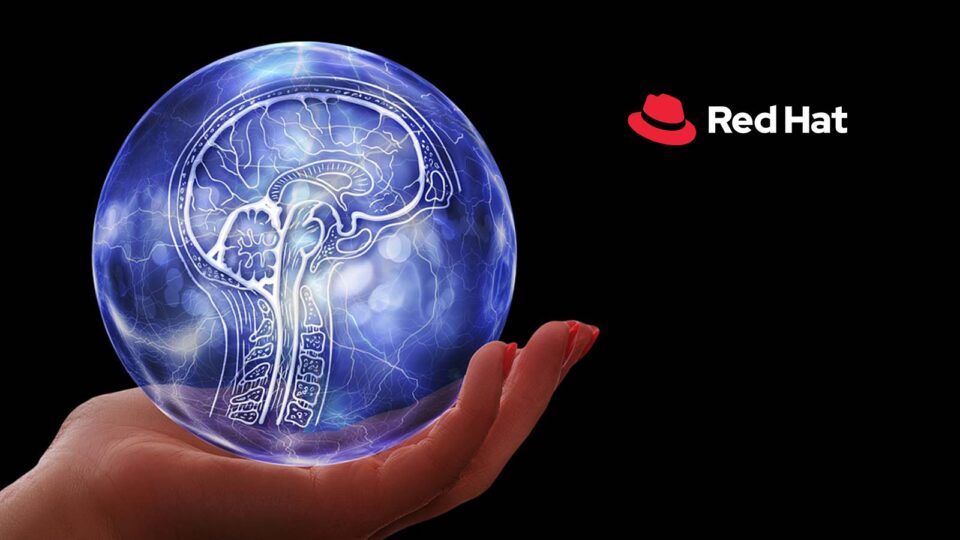Customers can more easily automate across hybrid clouds, IoT and edge deployments with Red Hat Ansible Automation Platform on Microsoft Azure
Red Hat, Inc., the world’s leading provider of open source solutions, announced Red Hat Ansible Automation Platform on Microsoft Azure. It builds on Red Hat’s standard for hybrid cloud automation that has been refined for the evolving realities of computing at hybrid cloud scale. The collaboration between Red Hat and Microsoft delivers a powerful solution that provides customers flexibility in how they adopt automation to deliver any application, anywhere, without additional overhead or complexity.
Combined, the power of cloud computing and the convenience of a managed offering allow IT organizations to quickly automate and scale in their cloud. Red Hat and Microsoft customers don’t have to worry about deploying and configuring a solution that can address enterprise-class use cases. Instead, they can start working immediately on complex scenarios like automated OS configuration, application provisioning, network automation, infrastructure as code (IaC) and security orchestration.
Top iTechnology IT and DevOps News: New Aruba EdgeConnect Microbranch Solution Modernizes the Home/Small Office Experience for Hybrid Workplaces
According to an IDC report1, “virtually (97%) of organizations see major barriers to their ability to effectively employ automation across their enterprise. Through 2023, many IT automation efforts will be delayed or will fail outright due to underinvestment in creating IT/Sec/DevOps teams with the right tools and skills. The end goal is to deliver consistent, coherent and cooperative automation at scale.”
Red Hat Ansible Automation Platform on Azure helps IT organizations perform these challenging tasks at scale while minimizing user error. The integration with Azure services, including Azure compute, network and storage can further increase the ROI of automation, allowing customers to scale their IT operations.
Red Hat Ansible Automation Platform on Azure enables enterprise IT teams to achieve greater scale, speed and standardization with automation practices for their hybrid cloud. This helps to remove the infrastructure maintenance and operational burden from IT teams, enabling them to focus purely on delivering automation strategies for a more efficient, flexible and scalable business.
The latest version of Ansible Automation Platform added self-contained automation capabilities to deploy at massive scale across hybrid clouds and edge environments, while shifting automation more deeply into the application development lifecycle. Its flexible foundation, tools, services and capabilities offer a whole new level of customization and control that expands the boundaries of what is possible for enterprises.
Top iTechnology Security News: ClearVector Announces Launch
Availability
Any customers interested in a private preview of the new Red Hat Ansible Automation Platform on Azure can sign up now.
Supporting Quotes
Joe Fitzgerald, vice president and general manager, Ansible Business Unit, Red Hat
“We believe that this is the decade of automation. Just like in other domains, from manufacturing to logistics, automation is the one technology that enables the operational scalability necessary to build and operate at hybrid cloud-scale. Customers around the globe are realizing this and are exploring many different options. But the automation needs of any organization go well beyond simply creating and destroying workloads or infrastructure. If you are in any operation team focused on continuous IT governance, automated infrastructure provisioning alone will not be enough. Ansible Automation Platform gives DevOps and ITOps the ability to automate and govern at scale every aspect of the application lifecycle, but it also gives NetOps, SecOps, and FinOps the ability to automate the multitude of tasks that must be executed irrespective of application delivery.”
Erin Chapple, corporate vice president, Azure Core Products and Design, Microsoft
“By integrating open source automation technologies, such as Red Hat Ansible Automation Platform on Microsoft Azure, customers can better automate at scale, evolve current practices and implement a culture of automation to meet future business needs. Our continued collaboration with Red Hat makes innovation as attainable and efficient as possible for customers.”
Jevin Jensen, research vice president, Intelligent CloudOps Market, IDC
“Public cloud adoption continues to grow tremendously. In addition, the complexity of managing this growth and meeting line of business digital transformation requirements has put added pressure on IT operations teams. New automation solutions are needed to keep pace. Incorporating an enterprise automation platform is an attractive addition for public cloud customers looking to address this challenge and expand their use cases quickly. As the need for enterprise-wide efficiency grows, so does the need for efficiency in their IT systems.”
Top iTechnology Cybersecurity News: DigitSec Announces Partnership and Integration With Copado DevOps Platform for Comprehensive Salesforce Security
[To share your insights with us, please write to sghosh@martechseries.com]


